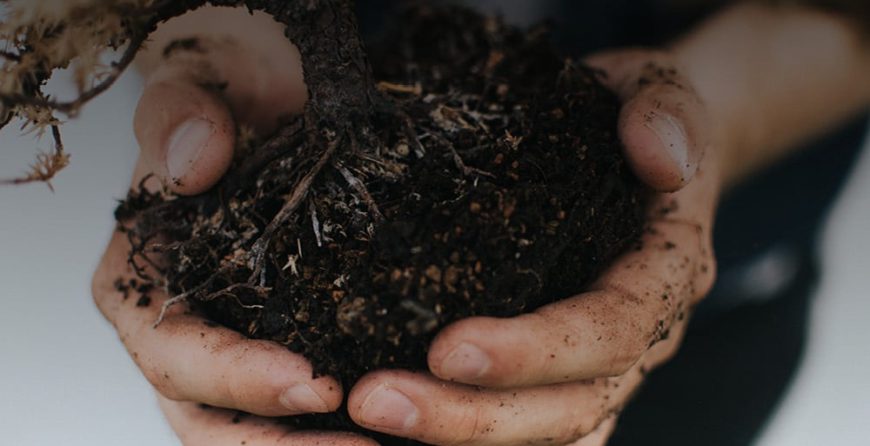 As someone who loves to be in your organic garden, you undoubtedly spend time researching the best ways to get an effective harvest. We suspect you’ve spent a fair amount of time looking into various composting methods.
As someone who loves to be in your organic garden, you undoubtedly spend time researching the best ways to get an effective harvest. We suspect you’ve spent a fair amount of time looking into various composting methods.
Something that you might not have considered before is using compost as your
soil. Using straight compost can be a great way to get a bountiful harvest if you do it right. Today, we’ve got some tips that will help you make the shift from topsoil to straight compost.
First, let’s have a refresher on what compost is and how it’s traditionally used.
There are several different kinds of compost, so it’s important to understand exactly what you’re looking for.
What is Compost?
- Compost is a mixture of decaying organic matter.
- The act of composting is turning decaying organic materials into compost.
- Finished compost is the matter produced once the decaying process is complete and the material is unlikely to change any further.
When compost is finished, it is dark brown, earthy-smelling, and crumbles easily. You should see pieces of small leaves and other organic matter in the mixture. If you see a lot of materials that aren’t yet broken down, it’s not fully decomposed. When compost is in this state, it can be used as mulch but it may reduce the nitrogen supply to your plants. If you do decide to add the compost to your soil at this stage, it will continue to decompose but the microorganisms in it will use soil nitrogen for their own growth.
We suggest separating the materials that aren’t quite broken down yet from the rest so they can finish decomposing. If you prefer not to wait, you can supplement the amount of nitrogen in the soil by adding manure. Doing so will keep you from worrying about a nitrogen deficiency.
The Purpose of Using Compost
Compost is supposed to condition your soil and can be spread in a layer or dug in. When you consistently add compost to your soil, it will hold air and water better, it will drain properly, and it will have a healthy supply of nutrients for your plants.
When you add compost to your soil, your plants will be healthier and more immune to diseases. The compost will encourage a large population of beneficial microorganisms to grow and it will help your plants resist pests.
Using Straight Compost
You can spread a one-inch thick layer of compost onto your garden beds or you can choose to use just compost as soil. If you’re going with the latter, here’s what you need to do:
- Choose the right kind of materials for your compost. Plants have different needs, so do your research on what the vegetables, herbs, or flowers you’re growing need in their soil. Adjust the soil acidity level accordingly and add bonemeal for plants that prefer alkaline or neutral soils. If your plants prefer an acidic environment, add citrus rinds and leaves to the compost. Test the pH before you start planting.
- Then, take the time to grind your compost. Compost is much lighter than topsoil because it’s made from freshly decayed material. Compost that has been ground packs tighter and mixes better with fertilizer. Just be sure to not grind it so fine that it looks like dust. Aim for compost that looks like fine soil particles.
- After grinding the compost, enhance it with a fertilizer mix. Because compost is often used as a supplement as opposed to straight, it doesn’t contain the amount of phosphorous and potassium that most plants need. Adding fertilizer will bolster the number of macronutrients in the compost and it will help the compost drain better.


